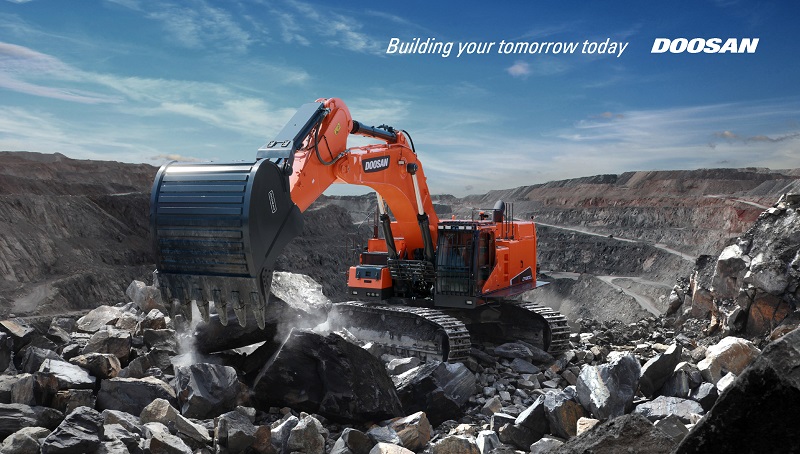By Jane Mwango, CK
April 24, 2022 | Updated April 25, 2022

When buying a new excavator, it is easy to get confused and make the wrong choice if you do not have a clear understanding of the right specs and features of the various types of excavators.
Here are 10 important things to consider when purchasing a new excavator.
1. Cost of the machine
Besides the price tag of an excavator, you should consider other factors that directly affect the overall cost of the machine. These include taxation, transportation cost, maintenance costs, and licenses.
However, this does not mean you should settle for the cheapest machine that comes your way. It is advisable to go for a high-quality machine that will serve you for years or several decades.
Excavators will the highest ROI over the operation period should be prioritized.
2. Nature of work
The nature of the task at hand is a key consideration when buying a new excavator. Be sure to look at the machine’s hydraulic systems.
Powerful hydraulic systems allow for improvements and efficiency in your productivity as they match the required power.
You should also consider the zero-tail swing or zero house swing features of an excavator.
Zero-tail swing option allows an excavator to move quickly while reducing the chances of an accidental impact on a nearby object.
On the other hand, the zero-swing for housing helps the operator to avoid hitting the front and sides of the excavator when moving the machine.
3. Quality of excavator
Excavators are used in settings that exposes them to elements such as rust. Continuous exposure to these elements often weakens part of the machine – which affects its safety, strength, and efficiency.
A high-quality excavator is designed to operate in harsh conditions without compromising on its performance. While these excavators come with high price tags, they often prove cost-effective in the long-run due to reduced maintenance and replacement costs.
4. Technology
When buying a new excavator, it is important to consider a machine made with the latest technology. Such excavators are usually safer, more efficient, and easier to operate.
These machines require less human-power, which gives them better durability as compared to their ‘less advanced’ counterparts. This makes them quite cost-efficient in the long run.
5. Availability of spare parts
Excavators, like other heavy machines, break down and wear out after some time – which calls for replacement of broken parts for the equipment to run smoothly again.
When buying the excavator, you should consider the availability of the spare parts within your region. This will help you meet keep your schedule as it prevents work stoppage when shopping for parts.
6. Availability of expertise
Same as the availability of spare parts in your area, you should consider the availability of skilled labour to knowledgeably operate and repair your excavator.
This will reduce chances of accidents around the job site, while enhancing the efficiency of the machine since repairs and routine maintenance can be done on-site, thus reducing time wastage.
7. Fuel efficiency
Fuel is a major cost for a heavy machinery owner. It is therefore advisable to shop for fuel-efficient excavators. These machines are designed to consume less fuel – saving you money in the long term.
8. Size of the excavator
Before buying a new excavator, it is important to consider your dig depth requirements. This is usually tied to the size of the excavator.
Smaller excavators are sufficient for digging small holes such as those for landscaping and other light-duty applications. On the other hand, larger excavators are used for digging deeper holes.
Purchasing a small excavator when your project requires digging of deeper holes for heavy-duty applications will be a waste of money, and vice versa.
9. Dealer’s reputation
Your dealer is a long-term partner. You will rely on them throughout the lifecycle of your excavator when you need spare parts, service, and repairs.
Look for a reputable dealer with a strong service department and strong partnerships with equipment manufacturers with reliable spare parts distribution networks.
Choosing a dealer should be a long-term commitment. Your dealer is who you will rely upon throughout the lifetime of your equipment when you need parts, service and repairs.
10. Warranties
Acquiring a new excavator is a capital-intensive venture. It important, therefore, to consider the machine’s warranties and available extended maintenance contracts.
This will save you from incurring unplanned repair costs.
Most excavator manufacturers offer standard warranties on their equipment, but a premium service programme will make a great impact on your overall costs of ownership.
You’ll find a Doosan® crawler excavator model equipped for nearly any digging, lifting and loading application—including confined roadways, major construction projects, mass excavation, heavy-duty mining, scrap handling and more.
This article was produced by CK in partnership with Doosan Group.